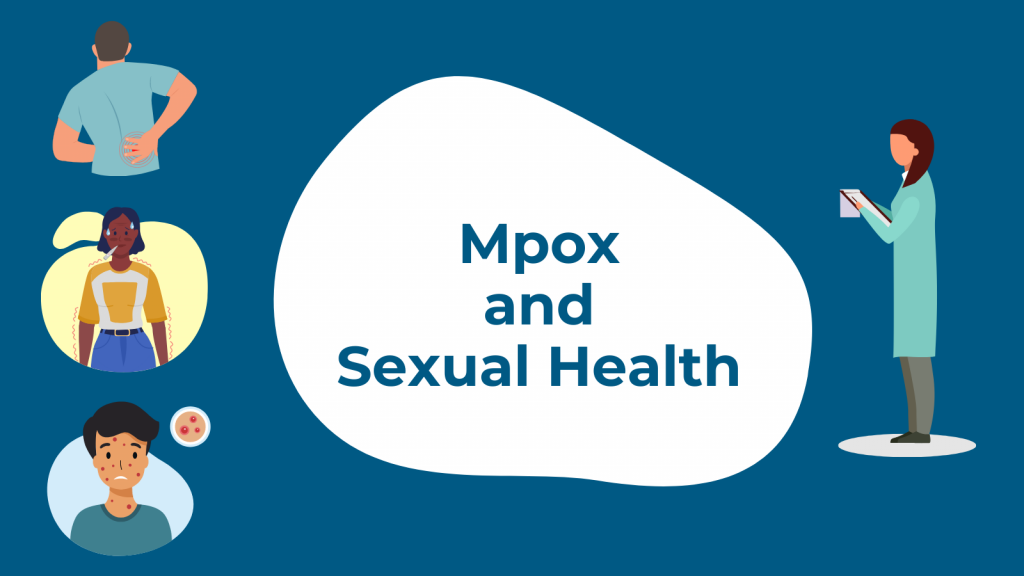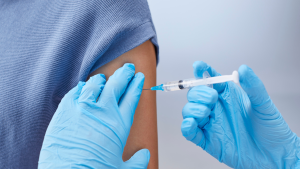
FDA Approves New Version of PrEP—Just Two Shots A Year
The FDA has approved lenacapavir as a form of pre-exposure prophylaxis (PrEP), offering a new option for HIV prevention requiring only two shots per year.

In May 2022, a small number of cases of a rare disease called mpox (previously referred to as monkeypox) were reported in the U.S., Canada, and several European countries—places where the disease isn’t usually found. Widespread changes in the behaviors of gay, bisexual, and other men who have sex with men who were disproportionately impacted by the infection were credited with slowing the outbreak last summer.
New cases emerged in summer 2023 and in 2024, the World Health Organization declared a global health emergency amid rising cases of mpox in at least thirteen African nations. In the U.S. the lessons learned from 2022 should help limit the spread of the infection. Read on to learn more about mpox and ways you can protect your sexual health.
Mpox is an infection caused by a virus. The mpox virus can be spread through close skin-to-skin contact with a person who is infected. Given that, mpox can be passed on by intimate sexual contact. Most of the cases in the U.S. have been diagnosed have been among cis men who have sex with men, but mpox can affect anyone of any gender or sexual orientation.
Mpox causes sores (see more on that below) on the skin. It’s contact with these sores, or fluid from these sores, that can spread the disease. So skin-to-skin contact, or contact with an infected person’s towels, clothing, or bedding, can pass on the infection. The Centers for Disease Control (CDC) also notes that the virus can be spread by saliva respiratory secretions during “prolonged, face-to-face interactions”….so, kissing and extended intimate contact present a risk. Currently, though, it’s not clear if mpox can spread through semen, vaginal fluids, urine, or feces.
CDC reported that some people can spread mpox to others from one to four days before their symptoms appear. There is currently no evidence showing that people who never develop symptoms have spread the virus to someone else.
The first symptoms are usually fever, headache, muscle aches, and backache. The infection may also cause swollen lymph nodes and exhaustion. A few days after these first symptoms, a rash or sores (as discussed above) can appear. The rash or sores often start on the face and then spread to other areas of the body, including the genitals, where the sores might be mistaken for herpes or syphilis.
Symptoms can last 2-4 weeks, and the infection usually resolves on its own. However, if you have any symptoms, especially an unusual rash or sores, it’s important to see a health care provider for an accurate diagnosis.
There is a vaccine called JYNNEOS that can protect against mpox and smallpox infections. The vaccine is given in two doses, four weeks apart. As with most vaccines, the mpox vaccine isn’t 100% effective, but getting vaccinated with two doses is an important way to prevent mpox. Vaccination makes the chance of getting and spreading mpox less likely and helps makes symptoms less severe if a person is infected.
Currently, the CDC recommends mpox vaccine for:
You can learn more and find an mpox vaccination site near you on the CDC website.
As a reminder, mpox infection is rare and there have been very few cases in the United States. Most of the cases continue to be among people at higher risk for mpox who have not been vaccinated. But there are things you can do to reduce the already low risk.
Last updated: August 21, 2024

The FDA has approved lenacapavir as a form of pre-exposure prophylaxis (PrEP), offering a new option for HIV prevention requiring only two shots per year.

On a recent episode of Love Island, a cast member sugested that we could blame our current STI epidemic on men who had sex with animals. She pointed to koalas with chlamydia as an example. There’s some truth here, but also a lot of misinformation.

A new report from the Centers for Disease Control (CDC) shows that we’re missing opportunities to prevent congenital syphilis and save lives.

There’s potential good news in gonorrhea prevention as a series of studies suggests that certain meningococcal B (MenB) vaccines can reduce the risk of gonorrhea.

There is new guidance on pain management for IUD insertion and acknowledgement that providers often underestimate the pain patients feel during their procedures.

The FDA just approved the Teal Wand, a self-collection device for HPV testing that does not require a speculum exam or even a trip to the doctor’s office. People can collect their own sample at home and send it to a lab for analysis.

The results of large-scale study of HPV suggest that one shot of the vaccine may be enough to protect young people from HPV and related issues like cervical cancer.

About 1.6 million cases of chlamydia and 600,000 cases of gonorrhea are diagnosed in the United Sates each year. A new study suggests that these patients may not be following through with STI treatment or getting the right antibiotics.
ASHA believes that all people have the right to the information and services that will help them to have optimum sexual health. We envision a time when stigma is no longer associated with sexual health and our nation is united in its belief that sexuality is a normal, healthy, and positive aspect of human life.
ABOUT
GET INVOLVED
ASHA WEBSITES
GET HELP
© 2025 American Sexual Health Association